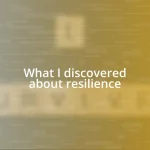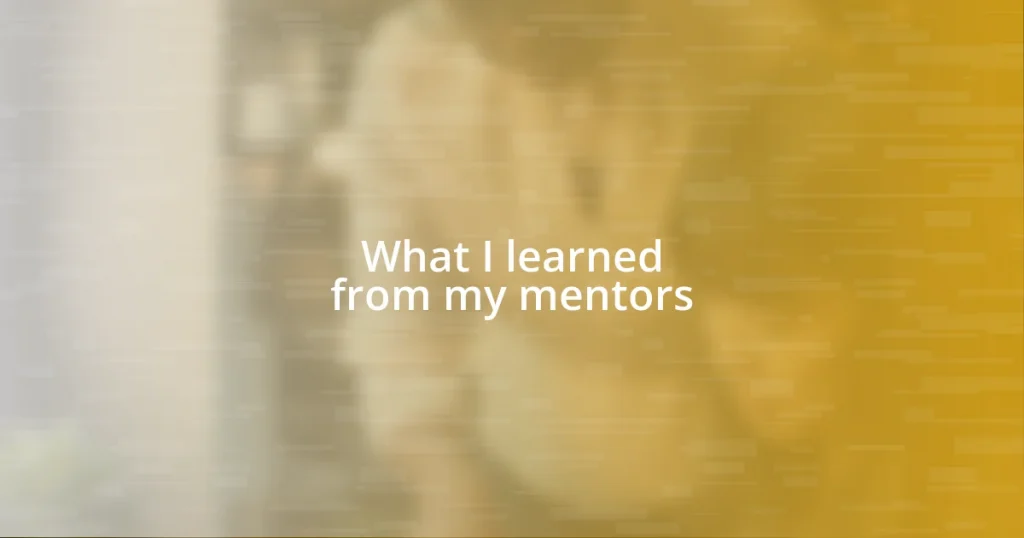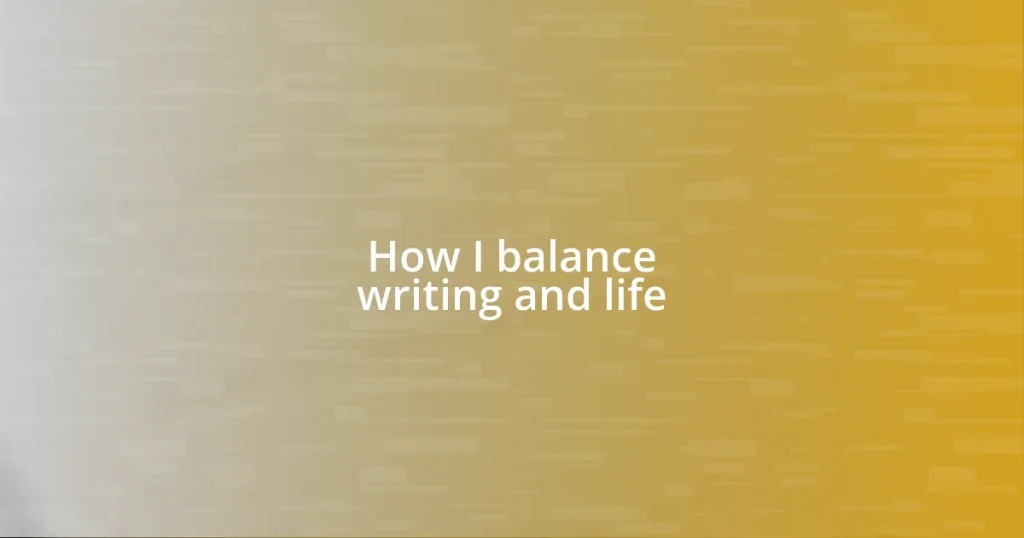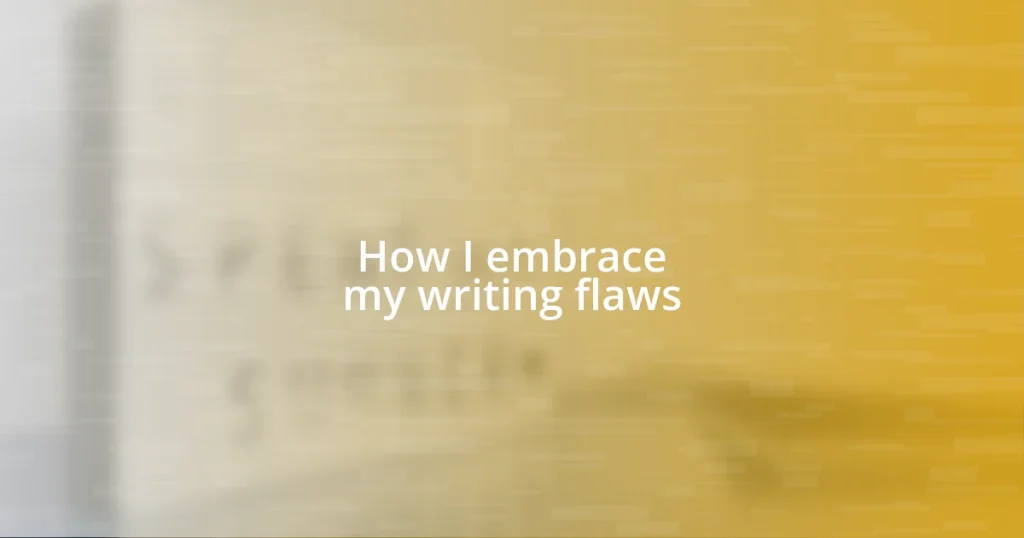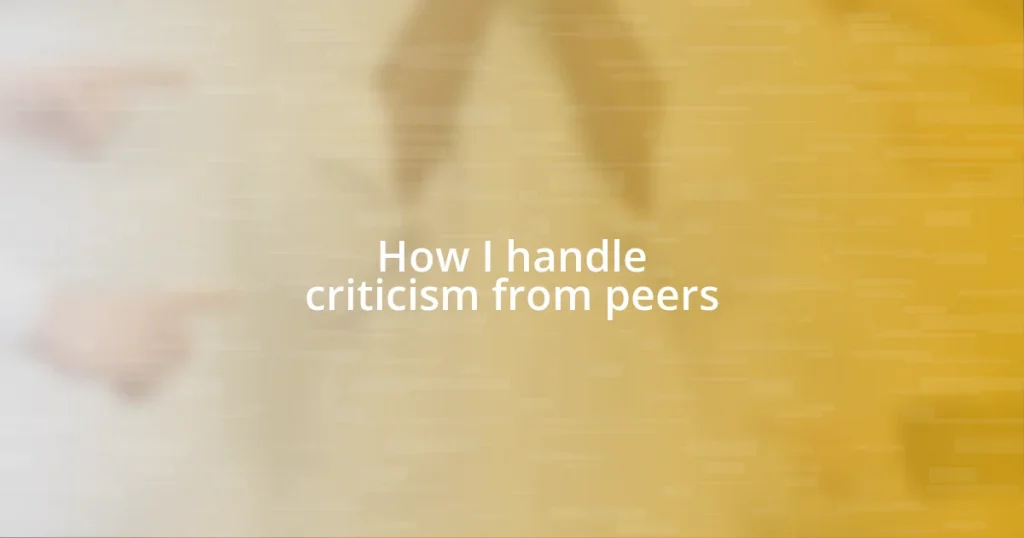Key takeaways:
- Mentorship significantly enhances personal and professional growth by providing support, guidance, and fostering confidence in mentees.
- Key qualities of effective mentors include empathy, experience, supportiveness, accountability, and commitment, which create a nurturing environment for learning.
- Building a lasting mentor relationship relies on genuine connection, consistent communication, and mutual growth, highlighting that mentorship is a two-way street.
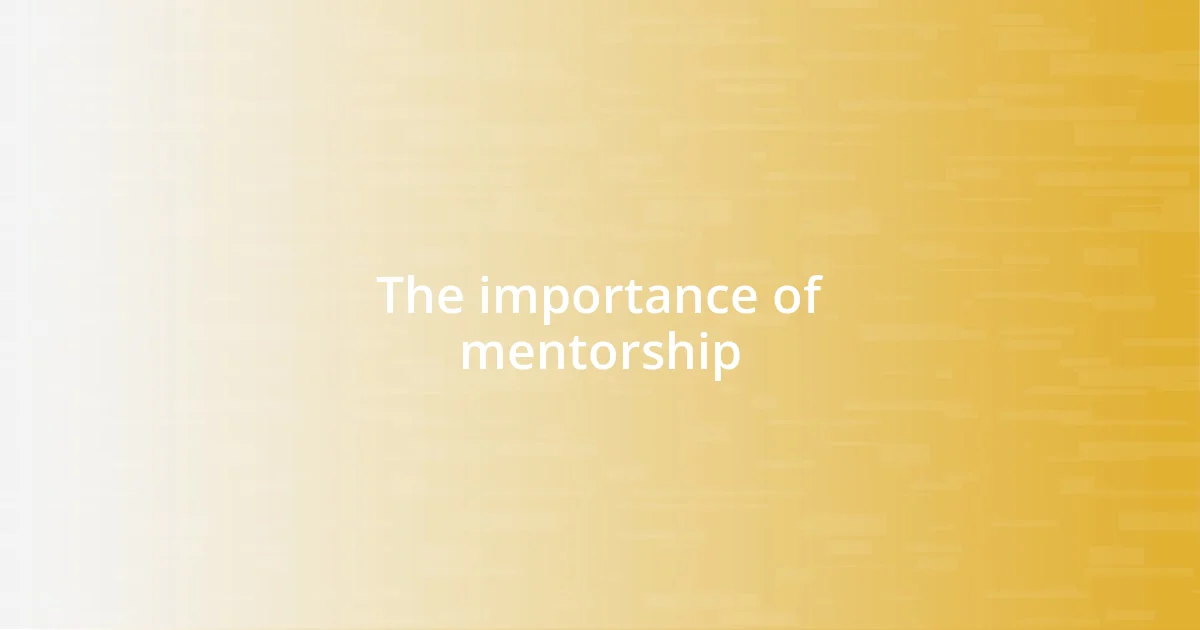
The importance of mentorship
Mentorship plays a crucial role in personal and professional development. I remember my first mentor, who didn’t just share knowledge but truly invested time in my growth. Can you recall a moment when someone believed in you, even when you didn’t believe in yourself? That’s the magic of mentorship.
Having a mentor can provide guidance that is often hard to find on our own. I once faced a crossroads in my career, and it was my mentor’s insights that helped me see a path forward. Don’t you think having someone to navigate challenges with is invaluable? It’s comforting to know that you’re not alone in your journey.
Moreover, mentorship fosters a sense of belonging and confidence. I’ve seen how mentees blossom under the support of their mentors, gaining clarity and purpose alongside their skills. Isn’t it amazing how one relationship can spark so much growth? That’s the transformative power of mentorship that continues to inspire me and others on their paths.
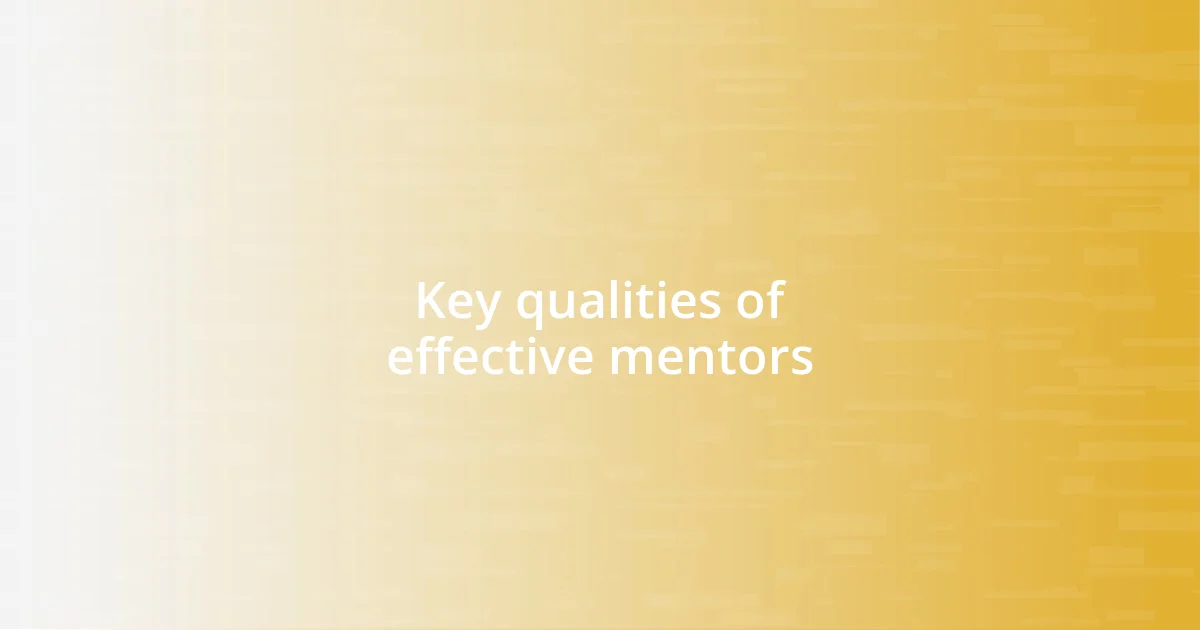
Key qualities of effective mentors
Effective mentors possess distinct qualities that set them apart. One of the most impactful traits I’ve encountered is empathy. I remember one particular mentor who actively listened to my concerns before offering solutions. Her ability to understand my feelings and perspective made a significant difference in my confidence. This emotional intelligence helped create a safe space for me to express my challenges.
Here are some key qualities of effective mentors:
- Empathy: They genuinely understand and relate to their mentee’s feelings and experiences.
- Experience: They draw from their own journeys, offering real-world insights that resonate on a personal level.
- Supportive: They create a nurturing environment, encouraging mentees to take risks and learn from failures.
- Accountability: They hold mentees responsible for their growth while providing constructive feedback.
- Commitment: They dedicate time and effort, showing that they truly care about the mentee’s development.
Just recently, a mentor of mine helped me reframe failures as lessons rather than setbacks. This shift in perspective not only eased my anxiety but also empowered me to pursue opportunities I would have otherwise shied away from. Their guidance was a light during uncertain times, underscoring the importance of dedication and support in mentorship.
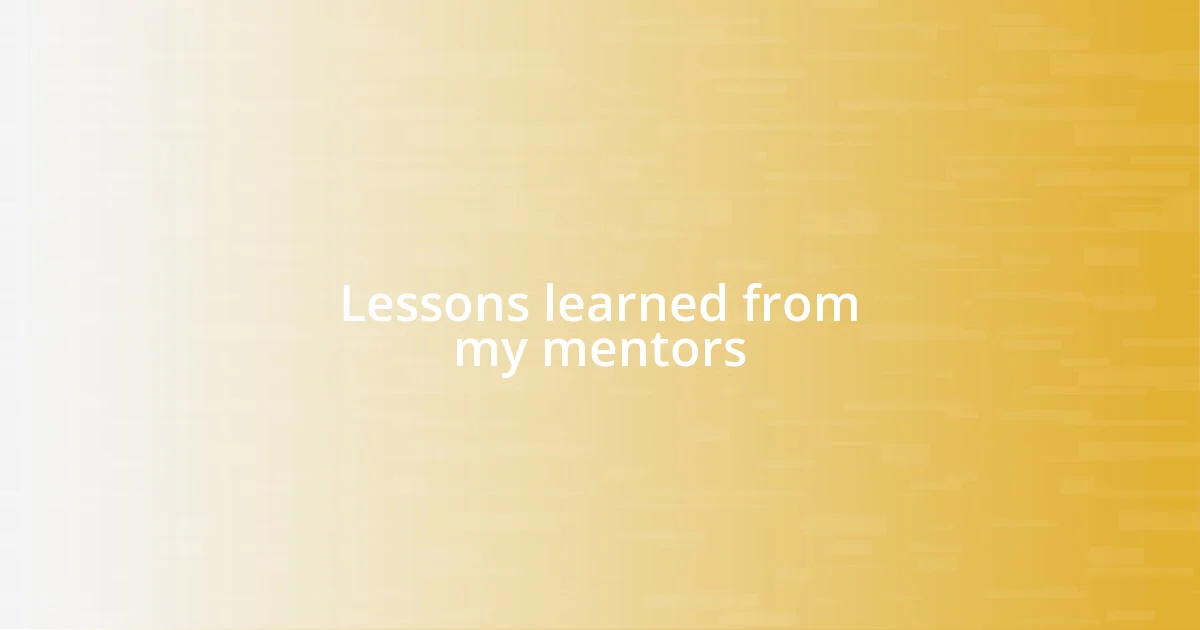
Lessons learned from my mentors
The lessons I’ve learned from my mentors have been truly transformative. One mentor taught me the value of resilience. I remember a time when I was struggling with a project that seemed insurmountable. Instead of directing me to solutions, he guided me to reflect on my approach, encouraging me to see challenges as opportunities for growth. This shift in mindset has stuck with me, reminding me that perseverance often leads to breakthroughs.
Another significant lesson came when a mentor noticed my tendency to shy away from confrontation. She encouraged me to embrace difficult conversations as essential components of effective leadership. It wasn’t easy at first, and I’ll admit, my heart raced each time I stood up to voice my opinions. However, with each conversation, I felt more empowered and understood that clear communication fosters respect and collaboration.
Lastly, I learned the importance of continuous learning through my mentors. They often shared their own stories of failure and how those experiences spurred personal and professional growth. This openness inspired me to adopt a mindset of lifelong learning. I often think back to how one mentor’s advice about seeking knowledge from every experience has guided me toward taking on new challenges with confidence.
| Lesson | Personal Experience |
|---|---|
| Resilience | Realizing challenges as growth opportunities through guided reflection. |
| Effective Communication | Embracing confrontation helped me become a more empowered leader. |
| Lifelong Learning | Encouraged to seek knowledge from all experiences has fostered my confidence. |
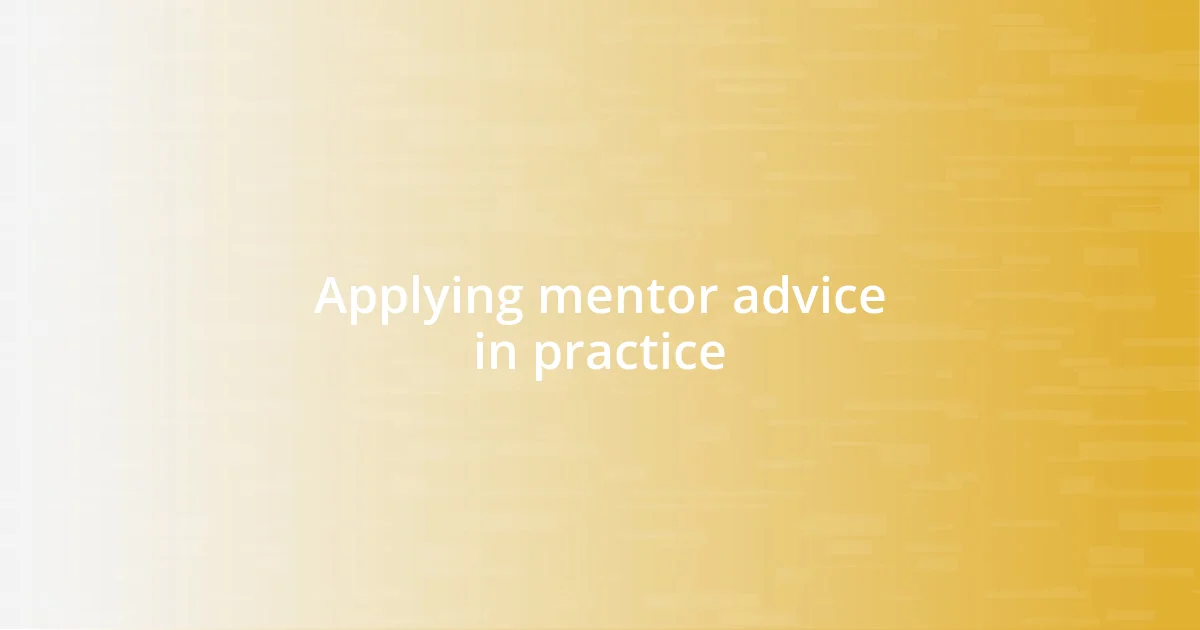
Applying mentor advice in practice
Applying advice from mentors is like trying on a new pair of shoes; it takes a bit to adjust, but once you find the right fit, it feels empowering. I vividly recall when one of my mentors suggested creating a daily reflection journal. At first, I was skeptical. How could jotting down my thoughts possibly change my perspective? Yet, with consistent practice, I found it opened doors to deeper self-awareness. It allowed me to not only track my progress but also recognize patterns in my thinking that I never noticed before.
Another instance that stands out is when I struggled with public speaking. A mentor advised me to join a local Toastmasters group, and it seemed overwhelming at first. I remember my heart racing as I stood up for my first speech. However, each session not only honed my skills but also built camaraderie among fellow speakers. The support and constructive feedback I received helped me realize that growth often flourishes in community settings. Isn’t it fascinating how facing fears alongside others can transform anxiety into confidence?
Mentor advice often requires more than just intention; it demands action. One of the best pieces of guidance I received was to treat every feedback session as a chance to learn and grow. Initially, I approached these moments with dread, but after deliberately shifting my mindset, I began immersing myself in the feedback. I discovered that viewing criticism as a stepping stone rather than a stumbling block made a world of difference. Reflecting on my journey, it’s clear that actively applying principles from my mentors opened pathways I hadn’t imagined before. How has mentorship influenced your perspective on feedback?
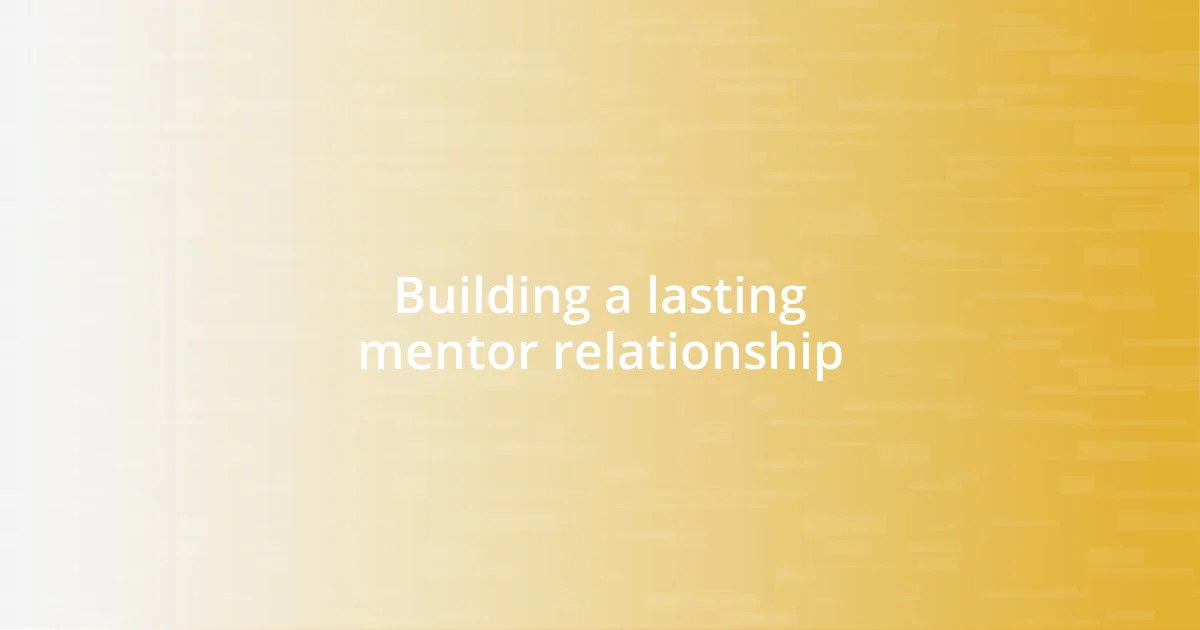
Building a lasting mentor relationship
Building a strong mentor-mentee relationship isn’t just about exchanging advice; it’s about genuine connection. I remember the early days of my first mentorship when I hesitated to be open about my fears. It wasn’t until I shared my vulnerability that we truly connected, allowing us both to explore deeper conversations. Trust grew steadily, and I realized that honesty is the bedrock of any lasting relationship.
Another key aspect is consistent communication. I learned this from a mentor who made it a point to check in regularly. Despite our busy schedules, those brief conversations made me feel valued and heard. I often found myself looking forward to our discussions, where we would brainstorm ideas together. It’s fascinating how such simple gestures can solidify a bond, isn’t it?
Lastly, I can’t stress enough the importance of mutual growth. My mentors always encouraged me to challenge them too, whether it was through asking questions or sharing fresh perspectives. This give-and-take dynamics cultivated an environment where both of us grew. Have you ever thought about how mentorship is a two-way street? It’s not only about receiving guidance but also about sharing insights that can enrich the relationship.
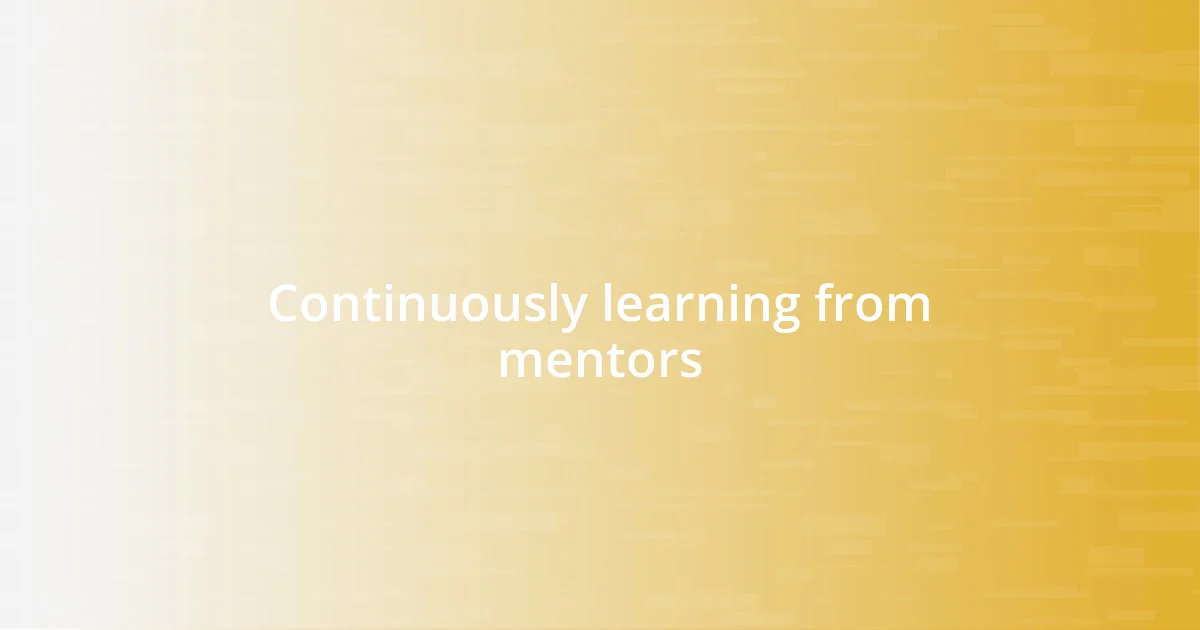
Continuously learning from mentors
Continuously learning from mentors is a journey that can truly reshape our trajectory. I recall a time when I felt stuck in my career, and one of my mentors suggested attending workshops regularly. At first, I viewed it as a chore, but soon, I found that every new session ignited my curiosity and expanded my skill set. I started absorbing insights like a sponge, and it became clear that learning never really ends when you’re open to it.
One evening, during a casual conversation over coffee, my mentor casually mentioned how he still seeks out new learning experiences, even after decades in his field. This revelation struck me; it was a refreshing reminder that expertise doesn’t mean knowing it all. Instead, it means committing to an ongoing process of learning. Doesn’t that make mentorship an exciting partnership rather than just a one-sided transaction? I’ve embraced that mentality ever since, eagerly pursuing opportunities for growth.
Moreover, I’ve learned that mentorship is not static; it evolves as we do. After receiving valuable feedback on my work, I often relay those insights back to my mentor to discuss how they’ve influenced my perspective. This exchange not only deepens our bond but also reinforces my own learning. Isn’t it incredible how these conversations can spark new ideas? Each time I engage with my mentors, I feel more equipped to tackle challenges, and that’s a testament to the power of continuous learning in our relationships.








